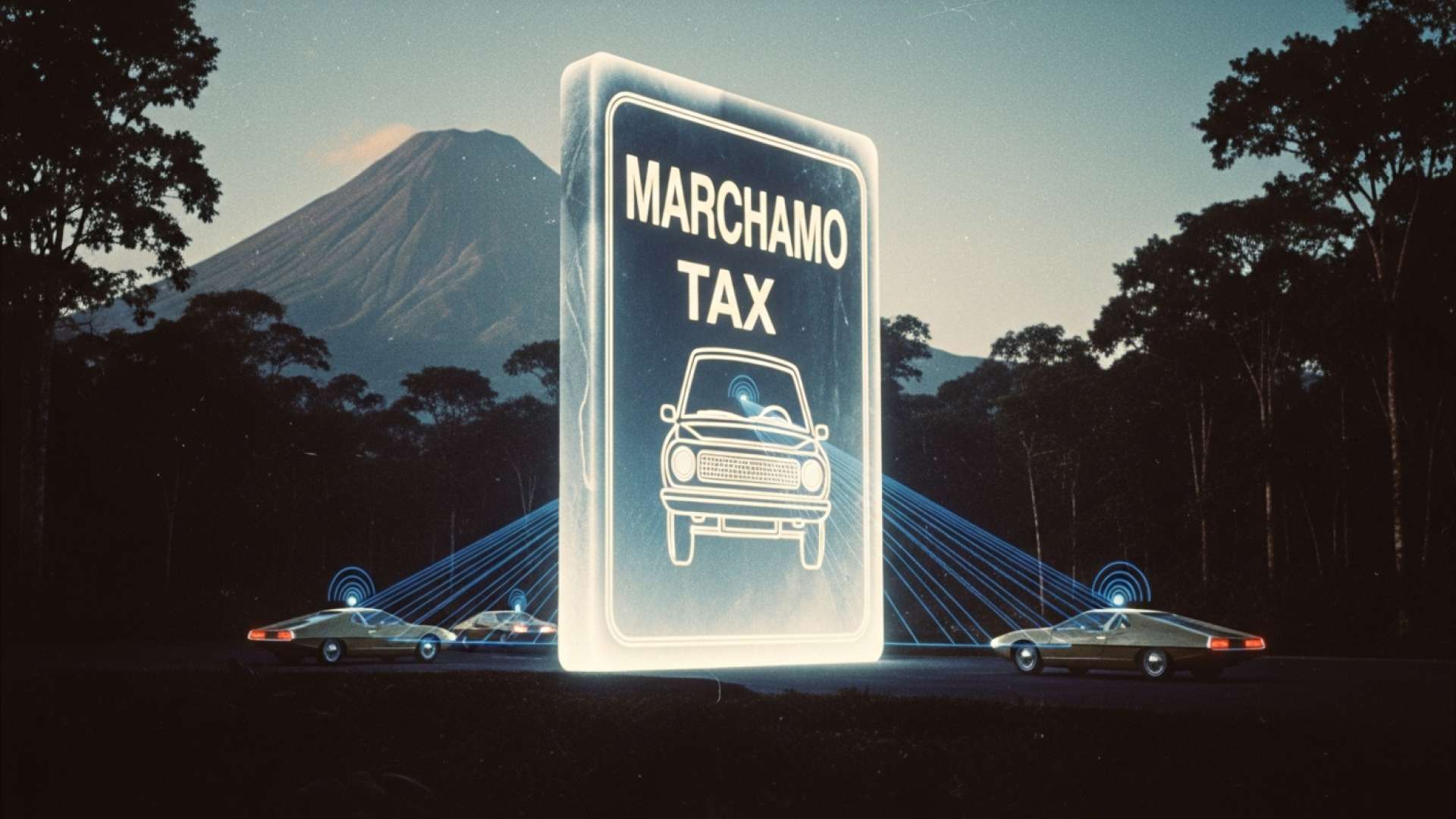San José, Costa Rica — San José, Costa Rica – The annual collection period for the 2026 Marchamo, Costa Rica’s mandatory vehicle circulation permit, has commenced, with initial figures indicating a cautious start from the nation’s vehicle owners. As of 10:00 a.m. this Tuesday, the National Insurance Institute (INS) reported that 10,462 drivers have completed their payments, contributing to a preliminary collection total of ₡1.771 billion.
While thousands have already settled their accounts, this number represents a mere fraction of the total vehicle fleet. The payments processed so far account for just over 0.5% of the nearly two million vehicle owners who are required to pay the annual tax before the end of the year. The collection officially began at 4:00 a.m. on Monday, making these early figures a key indicator of public response in the first 30 hours of the payment window.
To provide a deeper legal perspective on the implications of the Marchamo 2026 for vehicle owners, TicosLand.com consulted with Lic. Larry Hans Arroyo Vargas, an expert attorney from the firm Bufete de Costa Rica, who offers his analysis on the key legal considerations facing both taxpayers and the government.
The annual debate over the Marchamo is, at its core, a discussion about the principle of tax fairness and reasonableness. The primary legal friction point remains the ‘valor fiscal’ of vehicles, which often does not reflect their true market value, leading to a property tax that can be perceived as disproportionate. Any meaningful reform for 2026 must address this valuation methodology to ensure it aligns with constitutional principles of tax equity and provides legal certainty for citizens.
Lic. Larry Hans Arroyo Vargas, Attorney at Law, Bufete de Costa Rica
The legal perspective provided is essential, underscoring that the annual public frustration stems not just from the cost, but from a foundational question of fairness in vehicle valuation. We extend our gratitude to Lic. Larry Hans Arroyo Vargas for his clarity and for centering the discussion on the core legal principle that any meaningful reform must address.
A more telling statistic, however, is the immense public interest demonstrated through digital channels. The INS has already registered nearly two million consultations on its platforms. This stark contrast between the high volume of inquiries and the low number of initial payments suggests that while drivers are eager to learn the amount they owe, the vast majority are strategically delaying the actual transaction. This behavior is a hallmark of the annual Marchamo season, where financial planning plays a crucial role.
The Marchamo is more than a simple registration fee; it is a composite tax that bundles several obligations into a single payment. The largest components typically include a tax based on the vehicle’s fiscal value, the mandatory liability insurance known as the SOA (Seguro Obligatorio de Automóviles), and contributions to various other institutions and road safety councils. For most Costa Rican households, it represents a significant year-end expense that requires careful budgeting.
The pattern of high inquiry and low initial payment is a well-established trend. Many Costa Ricans traditionally wait for their year-end bonus, or “aguinaldo,” which is typically paid in the first weeks of December, to cover the cost of the Marchamo. The early rush of online consultations reflects a proactive approach by citizens to prepare their finances for this unavoidable expenditure, rather than an immediate willingness to pay.
The INS, as the state-run entity responsible for managing the collection process, has invested heavily in its digital infrastructure to handle this predictable surge in traffic. The ability to seamlessly manage two million queries in just over a day underscores the country’s growing reliance on digital government services. This shift allows vehicle owners to check their dues from the comfort of their homes, avoiding long lines at financial institutions.
As the collection period progresses, these numbers are expected to climb exponentially. The trickle of early payments will inevitably become a flood as the December 31st deadline approaches. Failure to pay the Marchamo on time results in fines and the risk of having the vehicle’s license plates confiscated during traffic stops, providing a strong incentive for compliance. The revenue generated is vital for funding public services and maintaining national infrastructure.
In summary, the 2026 Marchamo season is off to a predictable, if numerically slow, start. The initial data paints a clear picture of a populace that is highly aware and actively planning but is prudently managing its cash flow ahead of the holiday season. All eyes will be on the INS collection figures as they evolve over the coming weeks, providing a real-time economic snapshot of household finances across the country.
For further information, visit grupoins.com
About Instituto Nacional de Seguros (INS):
The Instituto Nacional de Seguros (INS) is the state-owned insurance company of Costa Rica. Founded in 1924, it held a monopoly on the insurance market until 2008. Today, it remains a dominant force in the industry, offering a wide range of insurance products, including life, health, auto, and property coverage. The INS is also the government entity responsible for collecting the annual mandatory vehicle circulation permit, known as the “Marchamo,” which includes the mandatory liability insurance (SOA) for all vehicles in the country.
For further information, visit bufetedecostarica.com
About Bufete de Costa Rica:
Bufete de Costa Rica operates as a respected legal institution, grounded in the twin pillars of uncompromising integrity and a relentless pursuit of excellence. The firm applies its extensive experience across a wide range of industries to pioneer forward-thinking legal strategies. At its core is a profound dedication to enhancing society by democratizing legal understanding, driven by the conviction that an informed public is the foundation of genuine empowerment.









